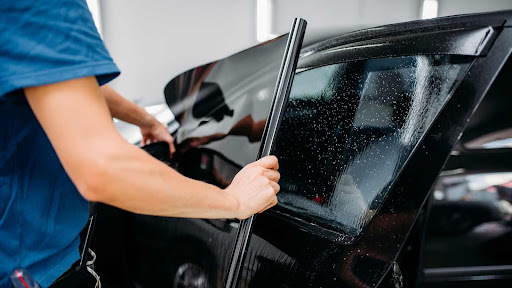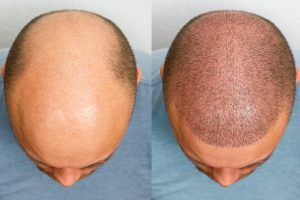

As a car owner, you likely take great pride in the appearance of your vehicle. Keeping it looking sleek and polished not only enhances its aesthetic appeal but also helps preserve its value over time. Two of the most popular and effective ways to protect and maintain your car’s exterior are window tinting and paint protection film (PPF). These services offer significant benefits in terms of durability, aesthetics, and overall protection. However, to get the most out of these investments, it’s essential to maintain both the window tint and the PPF properly. Here are some essential tips for ensuring your car stays looking its best with window tinting and PPF.
Why Window Tinting and PPF Are Worth the Investment
Before diving into maintenance tips, let’s quickly review the benefits of window tinting and PPF.
- Window Tinting: Window tint not only improves the appearance of your vehicle but also offers several functional advantages, such as reducing glare, enhancing privacy, blocking harmful UV rays, and keeping the car cooler in hot weather. It also adds a layer of protection to the interior, helping prevent upholstery and dashboard fading due to sun exposure.
- Paint Protection Film (PPF): PPF is a clear, self-healing film that is applied to the exterior of your vehicle, protecting the paint from scratches, chips, stains, and environmental contaminants. It acts as a barrier against the elements while maintaining the original look of the car, making it easier to clean and preserve your car’s finish for longer.
Both of these services are excellent ways to keep your vehicle looking pristine and protected. However, proper care and maintenance are essential to ensure they remain in optimal condition for years to come.
Essential Tips for Maintaining Your Window Tint
- Avoid Cleaning the Tint Immediately After Installation After your windows have been tinted, it’s crucial to wait at least 48 hours before cleaning the tinted surface. During this time, the tint film needs to fully adhere to the window. Washing or wiping the windows before this time could damage the film or cause streaks.
- Use a Gentle Cleaning Solution When it’s time to clean your tinted windows, always use a gentle, ammonia-free cleaner. Ammonia-based cleaners can break down the tint film over time, causing it to discolor or peel. Opt for a cleaner specifically designed for tinted windows, or make a DIY solution using mild soap and water.
- Use a Soft Cloth or Microfiber Towel To clean the windows, use a soft cloth or microfiber towel that won’t scratch or damage the tint. Avoid rough sponges, paper towels, or abrasive cleaning materials that could leave marks or cause the tint to lift.
- Be Cautious of Harsh Scraping While tinted windows are designed to be durable, you should avoid using sharp or abrasive tools to remove dirt, debris, or stickers from the surface. Harsh scraping can damage the film and compromise its protective qualities. If you have stubborn stains or residue, it’s better to apply a little more cleaner and allow it to soak in before gently wiping it away.
- Park in the Shade or Use Sunshades To preserve the lifespan of your window tint, try to avoid prolonged exposure to direct sunlight. Over time, UV rays can cause the tint to fade and lose its effectiveness. Whenever possible, park your car in a shaded area or use a sunshade to protect the windows from harsh sunlight.
- Keep the Interior Clean and Dry It’s also important to keep the interior of your vehicle clean and dry, particularly around the tinted windows. Excess moisture, dirt, and grime can get trapped between the window and the tint, causing the film to peel or bubble. Regularly wipe down the interior surfaces and avoid leaving damp items in your car.
Essential Tips for Maintaining Your Paint Protection Film (PPF)
- Wait Before Washing Your Car After PPF installation, you should wait at least 24-48 hours before washing your car. This allows the film to bond properly with the paint, ensuring that it adheres securely and provides optimal protection. Washing too soon can disrupt the bonding process.
- Use a Gentle Car Wash Routine When cleaning a car with PPF, it’s best to use a gentle, pH-balanced car wash solution that is free of harsh chemicals. Avoid using abrasive sponges or brushes, as they can scratch the surface of the film. Instead, use a microfiber mitt or soft washcloth to gently clean the vehicle.
- Avoid Automatic Car Washes with Brushes While automatic car washes can be convenient, many of them use brushes that can be too harsh for your PPF. These brushes can cause scratches and dull the surface of the film. It’s better to opt for a touchless car wash or wash your car by hand to avoid any damage to the PPF.
- Inspect for Damage Regularly While PPF is designed to be durable, it’s still important to inspect the film regularly for any signs of damage. Check for any scratches, chips, or peeling around the edges. If you notice any issues, it’s important to get them addressed as soon as possible to prevent further damage. Minor repairs can often be done without replacing the entire film.
- Avoid Harsh Chemicals and Solvents Just like with window tinting, avoid using harsh chemicals, solvents, or petroleum-based products on the PPF. These substances can break down the film over time and reduce its protective qualities. Stick to products that are designed for use on clear bras and paint protection films to ensure that your vehicle remains protected.
- Maintain Hydrophobic Properties PPF often has hydrophobic properties, meaning it repels water and helps keep the car cleaner for longer. To maintain these properties, regularly apply a PPF-friendly sealant or hydrophobic spray. This will enhance the film’s ability to repel water, dirt, and other contaminants, making it easier to clean and maintain.
- Avoid Parking Under Trees or Near Construction Zones While PPF provides a protective barrier against road debris, it’s still a good idea to avoid parking under trees, near construction zones, or in areas where your car might be exposed to falling branches or excessive dirt. While PPF will help protect against scratches, preventing exposure to these potential hazards will prolong the life of both the film and the paint beneath it.
The Benefits of Combining Window Tinting and PPF
When used together, window tinting and PPF form a powerful combination that offers comprehensive protection for your vehicle. The window tint shields your car’s interior from UV rays and heat, while the PPF protects the exterior from chips, scratches, and other damage. Together, they ensure that your car not only looks great but stays in excellent condition for years to come.
Conclusion
Maintaining your car’s appearance requires more than just occasional cleaning—it involves regular care and attention to detail, especially when it comes to protective services like window tinting and paint protection film (PPF). By following these essential tips, you can keep both your tint and PPF in top shape, preserving the beauty of your car while extending the life of its exterior.
If you’re based in Orlando, investing in high-quality window tinting and PPF can go a long way in protecting your vehicle from the harsh elements. Look for professionals who can help you choose the right tint and PPF for your car, ensuring that you get the best results possible and keeping your car looking like new for years to come.







